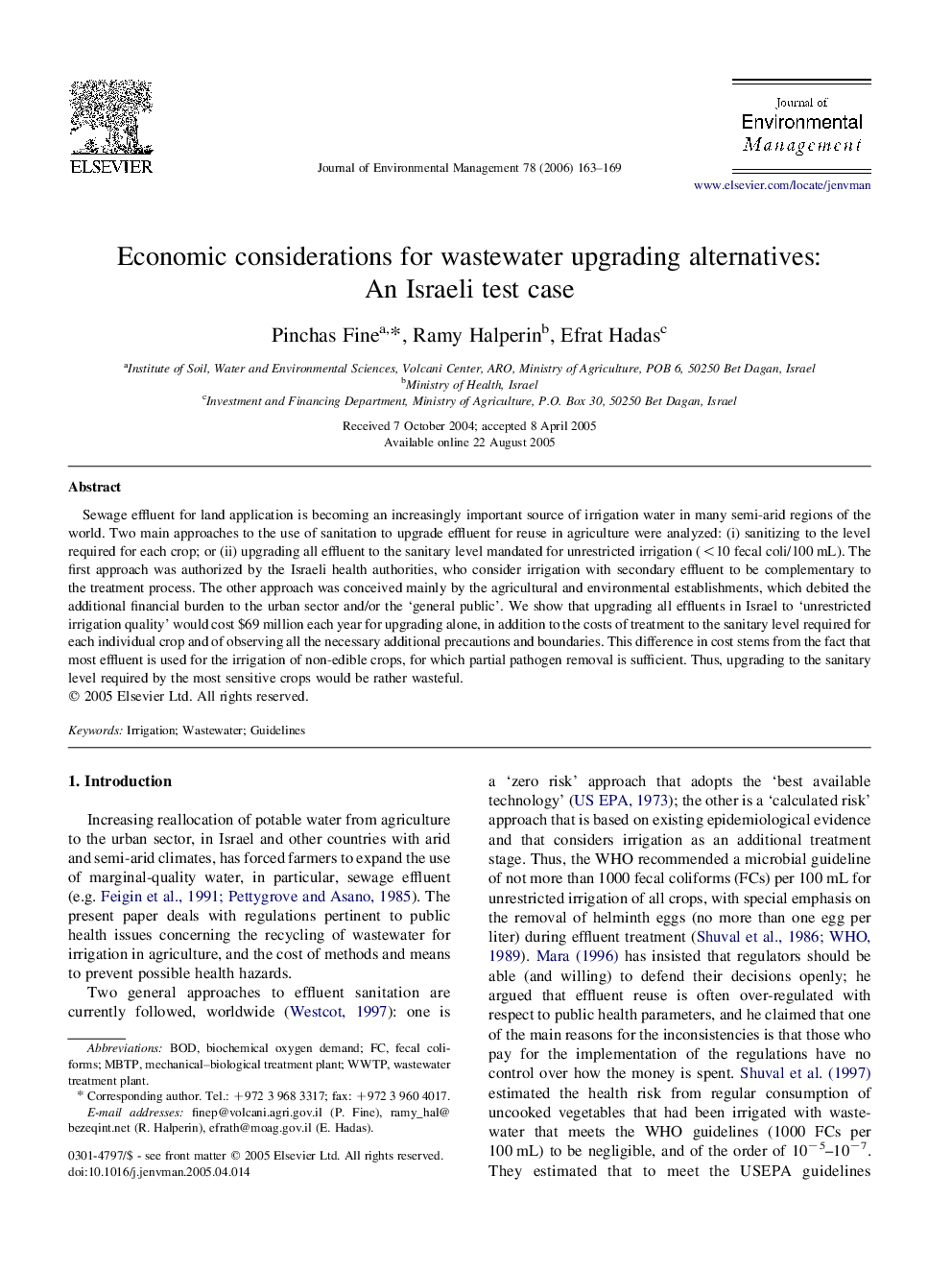| کد مقاله | کد نشریه | سال انتشار | مقاله انگلیسی | نسخه تمام متن |
|---|---|---|---|---|
| 1058524 | 947121 | 2006 | 7 صفحه PDF | دانلود رایگان |
عنوان انگلیسی مقاله ISI
Economic considerations for wastewater upgrading alternatives: An Israeli test case
دانلود مقاله + سفارش ترجمه
دانلود مقاله ISI انگلیسی
رایگان برای ایرانیان
کلمات کلیدی
موضوعات مرتبط
مهندسی و علوم پایه
مهندسی انرژی
انرژی های تجدید پذیر، توسعه پایدار و محیط زیست
پیش نمایش صفحه اول مقاله

چکیده انگلیسی
Sewage effluent for land application is becoming an increasingly important source of irrigation water in many semi-arid regions of the world. Two main approaches to the use of sanitation to upgrade effluent for reuse in agriculture were analyzed: (i) sanitizing to the level required for each crop; or (ii) upgrading all effluent to the sanitary level mandated for unrestricted irrigation (<10 fecal coli/100Â mL). The first approach was authorized by the Israeli health authorities, who consider irrigation with secondary effluent to be complementary to the treatment process. The other approach was conceived mainly by the agricultural and environmental establishments, which debited the additional financial burden to the urban sector and/or the 'general public'. We show that upgrading all effluents in Israel to 'unrestricted irrigation quality' would cost $69 million each year for upgrading alone, in addition to the costs of treatment to the sanitary level required for each individual crop and of observing all the necessary additional precautions and boundaries. This difference in cost stems from the fact that most effluent is used for the irrigation of non-edible crops, for which partial pathogen removal is sufficient. Thus, upgrading to the sanitary level required by the most sensitive crops would be rather wasteful.
ناشر
Database: Elsevier - ScienceDirect (ساینس دایرکت)
Journal: Journal of Environmental Management - Volume 78, Issue 2, January 2006, Pages 163-169
Journal: Journal of Environmental Management - Volume 78, Issue 2, January 2006, Pages 163-169
نویسندگان
Pinchas Fine, Ramy Halperin, Efrat Hadas,